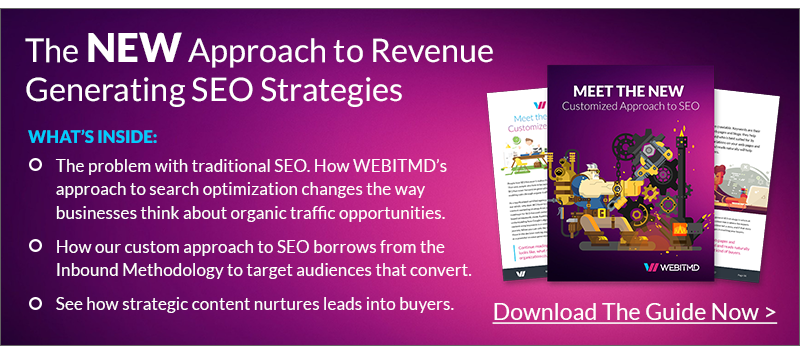SEO tools have evolved to measure the magnitude of variables. However, not all of these impact performance as they would a non-ecom site. Most ecommerce sites have many pages, so manual optimization is almost always not an option unless you have a labor force of 1000 people in some tech startup in India, and we all know how shady those are.
When it comes to ecommerce SEO, there are three major rules to ignore. They are as follows.
1. Effective Ecommerce SEO Demands Creativity with Product Descriptions
The general rule of thumb was to keep product descriptions basic and to the point: “This is an alpaca sweater. Size L. Color blue”. However, if you expect your site to rank for people who are searching for your products, then your product descriptions need to do a lot more than share basic information. This is important because Google’s algorithm has evolved to paid search results based on their ability to provide a solution for a searcher’s needs.
Furthermore, you can have multiple variations of a product based on size, color and features. So having enough unique content on each product description will make the search engines happy, and your customers will appreciate the variation. Going into 2020, product descriptions for a good ecommerce SEO strategy should include the following:
- Have 150 to 200 words of unique content
- Part of the content needs to show it is relevant to the primary product page
- Product description should have a link to the main product page using unique anchor texts that describe the product within a contextual framework for how buyers would use it
- Product description should address buyer needs
- The content should showcase the various solutions the product presents to buyer pains
- Still include basic descriptions
- Use multiple images, and tag them appropriately (some should show how a customer is using the product)
When following ecommerce SEO best practices for writing product descriptions you can attract customers who didn’t even know they needed your product. For example, if you own a company that sells drones and drone accessories, a significant percentage of your customers could come from searches performed by people looking for “family activities” or “gifts for nature lovers”. When you partner with an ecommerce marketing agency specializing in SEO, be sure to ask how they will empower your product descriptions to increase sales.
2. URL Length for Ecommerce SEO: Keep Structures Short?
You have probably heard that the shorter you can keep a URL, the better. And so long as it contains your main keyword and accurately describes the page’s content, this holds true. However, when it comes to creating URLs for an ecommerce SEO strategy, this rule can be dismissed. In 2015 Google’s Gary Illyes announced that the URL length doesn’t concern Google so long as it is under the HTTP limitations of 2,083 characters. He continues to assert that rankings signals have nothing to do with URL length.
Keep in mind that the home page, main category pages, and subcategory pages almost always get the most traffic, and these pages can easily have shorter URLs as they only describe a broad subject. However, when we get into specific product pages that contain more details, URL structures will need to be longer (and long enough to avoid duplicate URLs). So if you are worried that a long URL structure on a product page will kill your SOE efforts, don’t be, because it won’t.
3. 301 or 302 Redirects?
Back in the day, 302 temporary redirects failed to pass Google PageRank to the target page, making 301 redirects the prefered option for ecommerce SEO.
Is this still the case? In 2016 Google released a statement saying that 302 redirects work the same as 301s, passing 100 percent of PageRank juice to the destined page. However, various SEO tools still alert sites when 302 redirects are present. Indeed, there are reasons to embrace 301s. For example, unlike 302s they prompt indexing. Yet passing link authority is not possible. For these reasons, this metric deserves more attention.
Ready to Invest in a Modern Ecommerce SEO Strategy for Your Business?
WEBITMD has the perfect SEO solution going into 2020–a modern organic search strategy that doesn’t just rank your site well, but that sends high-quality traffic and high conversion rates.
Download our FREE guide below, and call us with any questions. We would love to learn about your customers and products, and create a strategy that will help you hit all of your growth goals!










(1).jpg)

.jpg)



![5 Reports to Elevate Your HubSpot Sales Dashboard [+ Examples]](https://2363531.fs1.hubspotusercontent-na1.net/hub/2363531/hubfs/Imported_Blog_Media/6-winning-examples-of-a-hubspot-sales-dashboard-2.png?width=767&name=6-winning-examples-of-a-hubspot-sales-dashboard-2.png)

